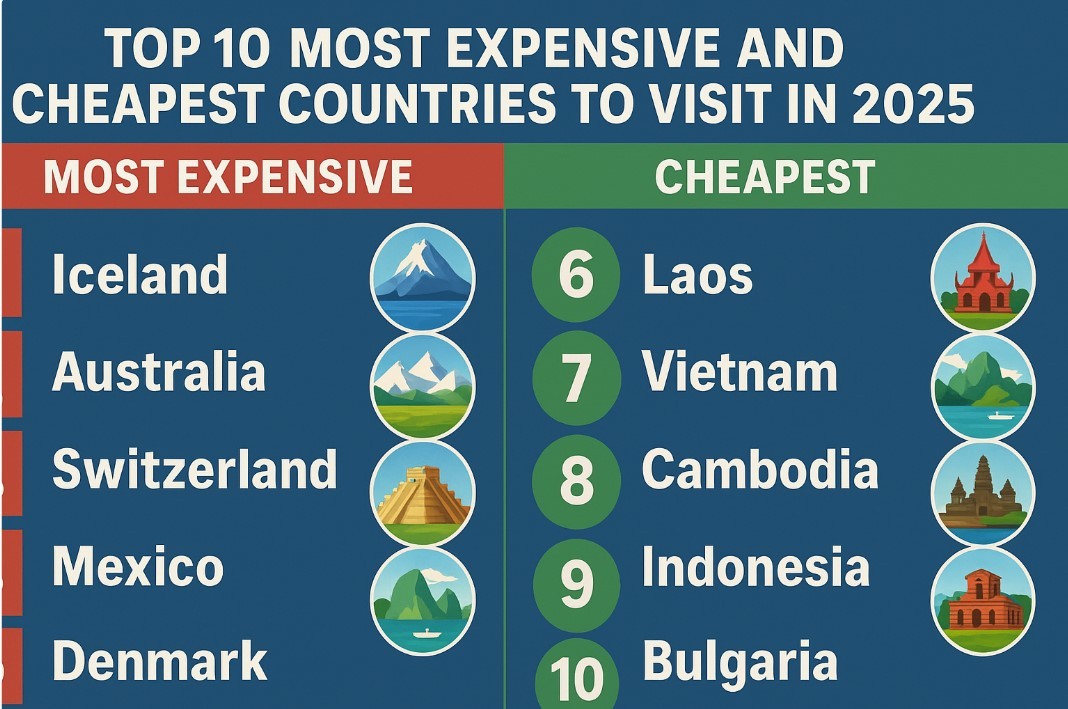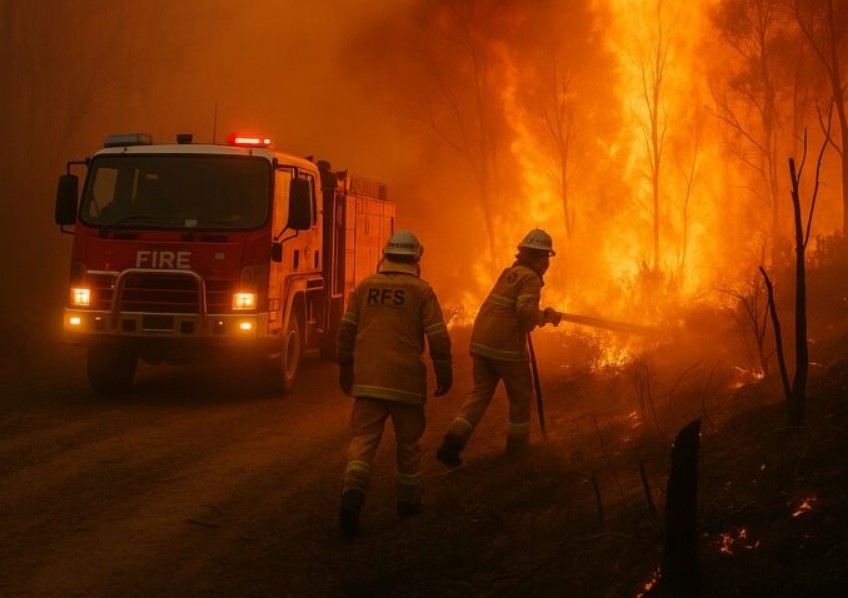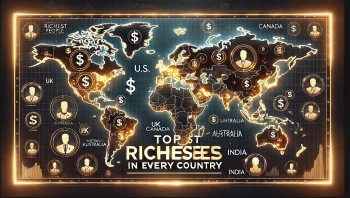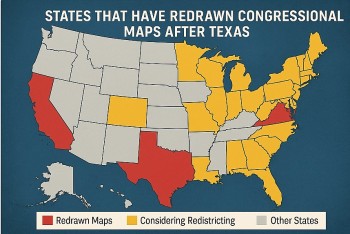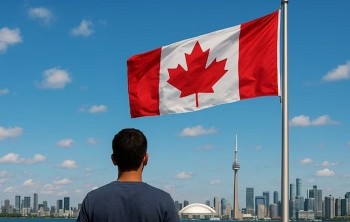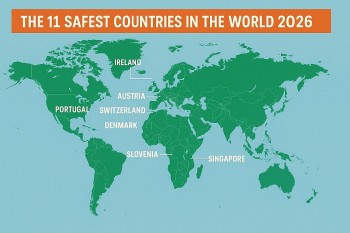June 2025 New Zealand Calendar: Holidays, Festivals, Observances, State Events, International Days
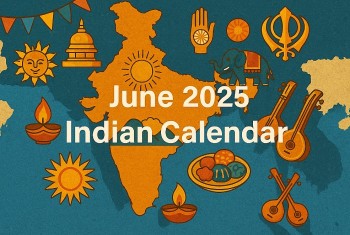 June 2025 Indian Calendar: Holidays, Festivals, State Events, International Days June 2025 Indian Calendar: Holidays, Festivals, State Events, International Days |
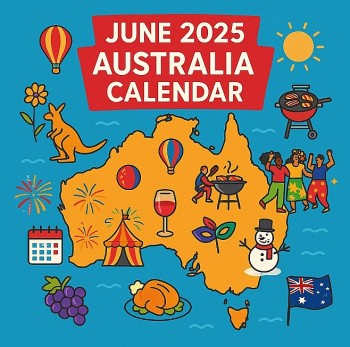 June 2025 Australia Calendar: Holidays, Festivals, Observances, State Events, International Days June 2025 Australia Calendar: Holidays, Festivals, Observances, State Events, International Days |
It marks the arrival of winter, the observance of important public holidays like King’s Birthday and Matariki, and features a range of festivals, school holidays, and internationally recognized days.
Overview of June 2025 in New Zealand
June in New Zealand is marked by crisp winter temperatures, early sunsets, and a strong cultural calendar. It’s a month that bridges the past and the future — with commemorations like the King’s Birthday and Matariki (Māori New Year), alongside modern-day celebrations of food, film, and nature. Snow begins to settle on alpine peaks, local tourism adapts to winter rhythms, and communities across the country embrace this cooler season with warm traditions and celebrations.
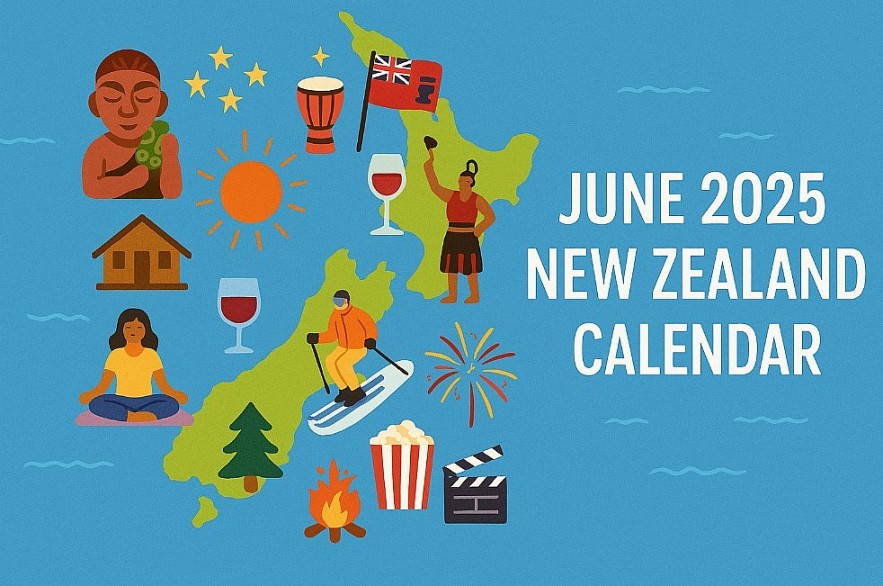 |
| New Zealand Calendar for June 2025 |
1. National Holidays and Long Weekends
June 2025 in New Zealand includes two major public holidays that bookend the month, offering citizens long weekends to rest, explore, and connect with cultural traditions. These holidays hold both historical and cultural significance and are widely observed across the country, impacting travel, tourism, commerce, and community activities.
King’s Birthday – Monday, June 2, 2025
Observed annually on the first Monday of June, the King’s Birthday is a ceremonial holiday rooted in New Zealand’s constitutional monarchy. While King Charles III’s actual birthday is in November, this mid-year date has long served as the official recognition. Government offices, schools, and many private sector businesses close, allowing families to enjoy a long weekend.
In major cities like Wellington and Auckland, the day is marked by community events, art exhibitions, and occasional military parades or flyovers. Retailers take advantage of the increased foot traffic by offering “King’s Birthday Sale” events, making it a key weekend for shopping and domestic tourism.
Sports also play a big role in the holiday atmosphere. Rugby and netball matches often draw large crowds, and local sporting clubs organize community tournaments. Parks and coastal areas fill up with families enjoying barbecues, bushwalks, and early winter picnics. For those staying indoors, cultural venues such as Te Papa and Auckland War Memorial Museum run themed exhibitions and kids’ programs.
Matariki Public Holiday – Friday, June 20, 2025
New Zealand is the first country in the world to celebrate an Indigenous New Year as a national holiday. Matariki, observed on June 20 in 2025, marks the heliacal rising of the Matariki star cluster (Pleiades) and the Māori lunar new year. Introduced as a public holiday in 2022, Matariki has grown into a national event filled with spiritual, cultural, and communal meaning.
Key themes of Matariki include:
-
Remembrance: Honouring those who have passed
-
Celebration: Gathering with whānau (family) and community
-
Aspiration: Planning and planting seeds for the year ahead
Across Aotearoa, the day is celebrated with dawn ceremonies, kapa haka performances, traditional Māori food (kai), storytelling sessions, and fireworks. Cities like Rotorua, Hamilton, and Christchurch organize festivals with light shows, concerts, and night markets. Schools engage in curriculum activities focused on Māori astronomy, language, and traditions.
Tourism New Zealand and local councils collaborate to encourage sustainable, culturally respectful participation in Matariki events, making it a peak season for domestic travel. Accommodations, restaurants, and tour operators often create Matariki-themed packages that blend celebration with education.
Together, the King’s Birthday and Matariki frame June with meaning and celebration. These holidays reflect New Zealand’s evolving identity, balancing heritage, diversity, and the shared values of community and renewal.
2. School Holidays in June 2025
While Term 2 officially concludes on Friday, July 4, 2025, preparations and excitement for the winter school holidays begin to build throughout June. Many families plan mid-winter getaways, and schools start winding down with end-of-term activities such as sports days, class trips, and cultural celebrations.
Academic Calendar Snapshot
-
End of Term 2: Friday, July 4, 2025
-
Term 3 begins: Monday, July 21, 2025
-
School Holidays: July 5 – July 20, 2025
Even though the break officially starts in July, many holiday programs, ski deals, and event bookings open in early to mid-June, with the latter half of the month acting as a warm-up to the nationwide break.
Top School Holiday Activities Planned in June
-
Family ski trips to Coronet Peak, Mount Hutt, Cardrona, and Whakapapa
-
Indoor cultural explorations such as the Otago Museum, Te Papa Tongarewa, and MOTAT
-
Creative workshops for art, crafts, coding, and robotics in libraries and community centres
-
Winter sports and nature camps, especially in Rotorua, Taupō, and Hanmer Springs
-
Matariki-themed activities, including storytelling, lantern making, and astronomy sessions in schools and local marae
Travel and Entertainment Offers
Retailers and travel providers offer winter break deals such as:
-
Free kids' admission to selected attractions
-
Family packages for lodges and ski passes
-
Holiday camps with early-bird discounts
Local councils and libraries often publish dedicated guides or newsletters highlighting available holiday programs and low-cost or free options for families.
In summary, June is a key month for laying the groundwork for the school break ahead—helping families, educators, and communities prepare for a winter season filled with learning, fun, and whānau time.
3. Major Festivals and Cultural Events
June in New Zealand is alive with dynamic festivals and cultural events that celebrate music, light, storytelling, and heritage. Despite the chill, communities gather to express creativity, build connections, and embrace the spirit of winter through artistic experiences.
Wellington Jazz Festival – June 4–8, 2025
Set in the heart of the capital, this five-day festival offers an eclectic mix of smooth classics, modern fusion, and experimental sounds. Performances take place in theatres, bars, restaurants, and public squares, turning Wellington into a vibrant, jazz-filled hub. The program features:
-
International jazz legends and homegrown stars
-
Youth and school jazz ensembles
-
Masterclasses, jam sessions, and behind-the-scenes panels
New Zealand International Film Festival (Winter Launch)
A cultural cornerstone, NZIFF hosts early screenings in June before touring the country. The event spotlights bold, boundary-pushing storytelling from New Zealand, the Pacific, and beyond. Highlights include:
-
Māori and Pasifika filmmaker showcases
-
Feature-length debuts and independent cinema
-
Q&A sessions with directors, producers, and screenwriters
LUMA Southern Light Project – Queenstown, June 6–9, 2025
Held over King's Birthday weekend, LUMA is one of Queenstown’s biggest annual events. Installations light up the Queenstown Gardens, lakefront, and downtown area. Families enjoy:
-
Giant kinetic light sculptures
-
Interactive exhibits for kids
-
Live local music and fire dancers
Food trucks and pop-up bars complement the glow, offering mulled wine, gourmet hot chocolate, and alpine snacks. LUMA’s strong sustainability focus includes reusable materials and minimal waste setups.
Puaka Matariki Festival – Dunedin (mid to late June)
Running parallel to national Matariki celebrations, this festival includes exhibitions, music, and Māori cultural workshops. Local marae and institutions host storytelling, astronomy nights, and kai hākari (feasting). Dunedin’s galleries and museums often launch Matariki-themed exhibitions during this time.
Nelson Winter Music Festival (TBC)
Held in various venues around Nelson, this cozy winter event celebrates chamber music, acoustic sets, and folk-inspired performances. Candlelit concerts, wine tastings, and artist meet-and-greets create an intimate atmosphere.
Whether you’re moved by melody, inspired by light, or drawn to film and folklore, June’s festival scene across Aotearoa offers something deeply enriching.
4. Regional and Māori Observances
June offers rich opportunities to experience localized and iwi-specific observances that deepen the meaning of national celebrations like Matariki. Across the motu (country), Māori communities bring unique practices and ancestral knowledge to life through storytelling, ceremonies, and community engagement.
Matariki Celebrations (Nationwide, mid to late June)
While Matariki is celebrated across Aotearoa as a national holiday, each iwi brings its own flavor to the observance. These events often include:
-
Dawn Ceremonies (Hautapu): Sacred rituals involving food offerings to the stars, observed on local marae.
-
Kapa Haka and Waiata: Traditional Māori performing arts featured at schools, community centers, and public stages.
-
Matariki Markets: Selling Māori arts and crafts, woven items, traditional kai (food), and indigenous plants.
-
Art Exhibitions and Light Shows: Celebrating whakapapa (genealogy) and Māori astronomy through visual storytelling.
For example:
-
Ngāi Tahu in Te Waipounamu (South Island) often include stargazing walks with elders explaining ancestral navigation.
-
Ngāti Whātua Ōrākei in Auckland hold urban events in partnership with museums and galleries.
Puanga Rising (Taranaki, Whanganui)
In some regions, Puanga (Rigel) is observed as the New Year marker rather than Matariki due to visibility in the sky. These areas host:
-
Cultural Workshops: Focused on traditional food preparation, healing practices, and Māori instruments.
-
Garden Planting Ceremonies: Honoring the cycle of growth, harvest, and renewal.
-
Community Hui and Hīkoi (Walks): Designed to foster intergenerational learning and unity.
Te Tau Hou Māori (Māori New Year) Activities
In addition to formal celebrations, many marae, kura kaupapa (Māori immersion schools), and libraries host month-long educational programs about the maramataka (Māori lunar calendar), whakapapa, and atua (deities).
These regional and iwi-led observances deepen the cultural narrative of June and highlight the diversity and vitality of Māori traditions across Aotearoa.
5. International Days Observed in New Zealand
June is a globally recognized month for environmental action, cultural awareness, and wellness. In New Zealand, these international observances are widely supported by schools, councils, community organizations, and NGOs, offering a platform for education, outreach, and engagement.
World Environment Day – Thursday, June 5
Coordinated by the United Nations, this day promotes awareness and action for the environment. In New Zealand, activities include:
-
Tree planting in parks and conservation zones
-
Community clean-up events in urban and coastal areas
-
Environmental film screenings and panel discussions
-
Eco-education in schools and libraries focusing on native species and waste reduction
Major cities like Wellington and Christchurch often host green expos and sustainability workshops, while iwi and local councils partner on riparian restoration and habitat protection.
World Oceans Day – Sunday, June 8
Given Aotearoa’s close connection to the Pacific Ocean and marine biodiversity, this day is marked with:
-
Beach and harbour clean-up drives
-
Marine life talks and touch pool experiences at aquariums
-
Educational programs in schools focusing on ocean health, pollution, and conservation
-
Blessing ceremonies led by Māori elders to acknowledge the spiritual value of Tangaroa (god of the sea)
Events at Kelly Tarlton’s Sea Life Aquarium in Auckland and the National Aquarium in Napier draw large public participation.
World Refugee Day – Friday, June 20
New Zealand’s refugee communities and advocacy groups use this day to celebrate resilience, diversity, and belonging. Events include:
-
Cultural festivals featuring refugee food, music, and dance
-
Photo exhibitions and refugee-led art projects
-
Storytelling events and panel discussions on immigration, asylum, and human rights
-
Community picnics in partnership with local councils and migrant support agencies
Refugee background communities in Auckland, Palmerston North, and Hamilton host events that foster dialogue and appreciation for multiculturalism.
International Day of Yoga – Saturday, June 21
This global wellness celebration is observed in cities and towns across New Zealand with:
-
Sunrise yoga gatherings in scenic parks such as Auckland Domain and Wellington Waterfront
-
Meditation and breathing workshops in wellness studios
-
Cultural programs led by Indian associations featuring traditional music and Ayurvedic health practices
In colder regions, yoga sessions are held indoors in heated community centres, with themes of inner warmth and mindfulness.
Other International Days Noted in June
-
International Children’s Day – June 1: Focused on child well-being and safety, with school-led activities and UNICEF campaigns.
-
World Blood Donor Day – June 14: Hosted by New Zealand Blood Service with donation drives and public awareness campaigns.
-
International Day Against Drug Abuse and Illicit Trafficking – June 26: Observed with school talks, health outreach programs, and government-led prevention campaigns.
Together, these days help Kiwis connect with global causes and support national values of sustainability, diversity, and community care.
6. Winter Sports and Recreation
June marks the official start of New Zealand's winter sports season, drawing locals and tourists alike to the country’s snow-covered landscapes. It’s the time of year when ski fields open, alpine resorts bustle with excitement, and hot springs become havens of relaxation. Whether you're an adrenaline junkie or seeking a cozy winter escape, there’s something for everyone.
Popular Ski Fields and Resorts
New Zealand boasts some of the best skiing and snowboarding destinations in the Southern Hemisphere. Ski fields usually open in early to mid-June, depending on snow conditions:
-
Coronet Peak (Queenstown): The first ski field to open each year, with night skiing, terrain parks, and family zones.
-
Cardrona Alpine Resort (Wanaka): Known for its diverse terrain suitable for all levels, plus excellent snowmaking and childcare facilities.
-
Treble Cone: Offers the longest vertical rise in the Southern Lakes and panoramic views over Lake Wānaka.
-
Mount Hutt (Canterbury): Regularly voted New Zealand’s best ski resort, known for reliable snow, wide trails, and a friendly vibe.
-
Whakapapa & Tūroa (Mount Ruapehu): The largest ski areas on the North Island, popular for both school groups and experienced skiers. Features include Happy Valley for beginners and steep slopes for pros.
Non-Ski Winter Adventures
Not a skier? No problem. June offers plenty of winter recreation options:
-
Snowshoeing and Tobogganing: Available at several ski resorts and alpine villages.
-
Glacier Walks and Ice Climbing: Franz Josef and Fox Glacier tours give access to frozen landscapes via helicopter.
-
Winter Ziplining and Gondola Rides: Available in Queenstown, Rotorua, and Christchurch for breathtaking views.
Thermal Retreats and Relaxation
After a day in the snow, warm up in one of New Zealand’s many geothermal and spa locations:
-
Hanmer Springs Thermal Pools: Surrounded by mountains, with sulphur pools, waterslides, and private spas.
-
Lake Tekapo Hot Springs: Overlooking a pristine alpine lake with starry night views.
-
Polynesian Spa (Rotorua): World-renowned for its mineral waters and lakefront relaxation.
Snow Events and Opening Celebrations
Resorts kick off the season with vibrant opening weekend events that include:
-
Fireworks displays
-
Live music and DJ sets
-
Costume ski parades and competitions
-
Family snow festivals and kids' activities
Winter in Aotearoa is more than just snow sports—it’s about embracing the cold season with adventure, culture, and comfort.
7. Arts, Food, and Culture
New Zealand’s winter encourages cultural warmth through artistic immersion and culinary richness. As temperatures drop, communities across Aotearoa embrace seasonal creativity with bold flavors, intimate gatherings, and dynamic expressions of heritage and identity.
Dunedin Midwinter Carnival – June 21
This iconic solstice event lights up the city with handcrafted lanterns, fire performances, and theatrical parades that draw thousands. Held in the Octagon, it combines folklore and fantasy with themes such as "Dark Forests" or "Winter Myths." Local schools and community groups participate in the parade, while surrounding businesses extend their hours for food and artisan markets.
Christchurch Night Noodle Markets (TBC)
One of the South Island’s most anticipated food festivals, this event transforms central Christchurch into a vibrant hub of pan-Asian flavors. From Thai skewers to Korean fried chicken, vendors serve hot, aromatic street food alongside live music, light sculptures, and fire pits. It’s both a culinary and cultural celebration that appeals to families, students, and tourists alike.
Matariki-Themed Dining Experiences
Restaurants, vineyards, and marae across the country create special Matariki-inspired menus that highlight native and seasonal ingredients. These multi-course meals often include:
-
Kūmara, horopito, and rewena bread
-
Smoked eel, paua, and harvested greens
-
Locally made wines and bush-infused teas
Chefs may also collaborate with Māori elders or cultural experts to tell ancestral stories through food, deepening the connection between cuisine and cultural identity.
Gallery Exhibitions and Winter Arts Installations
June sees a spike in new openings across art galleries and museums. Notable examples include:
-
Toi o Tāmaki (Auckland): Exhibits highlighting Polynesian migration and oceanic navigation.
-
City Gallery Wellington: Contemporary art reflecting on land, climate, and social change.
-
The Suter Art Gallery (Nelson): Showcases from emerging artists inspired by winter landscapes and maramataka (Māori lunar calendar).
Many smaller towns also host indoor artisan markets where visitors can meet local weavers, carvers, and potters and purchase handcrafted winter goods.
Music, Dance, and Theatre Performances
Intimate winter concerts and stage shows flourish across venues like:
-
The Civic (Auckland)
-
Isaac Theatre Royal (Christchurch)
-
Court Theatre, BATS Theatre, and local marae-based performances
Cultural centers often host kapa haka, classical music, folk storytelling, and dance nights — ideal for warming the soul through live expression.
From hot noodles under starlit skies to immersive exhibitions and heartfelt music, June’s cultural scene offers a deep, delicious, and meaningful winter journey.
8. Travel and Tourism Trends
June is one of the most dynamic months for tourism in Aotearoa:
Domestic Travel Trends
-
Families travel for school holidays and snow adventures.
-
Couples opt for romantic winter escapes in vineyard regions like Marlborough and Central Otago.
-
Solo travelers enjoy city-based cultural events or explore nature via guided tours.
International Visitors
Tourists from Australia, China, and the U.S. flock in for snow, wildlife, and Māori cultural immersion. Expect travel discounts, winter festival bundles, and scenic rail passes.
9. Stargazing and Astronomy
The night sky in June is especially meaningful during Matariki season. Indigenous star stories intertwine with scientific observation to create profound skywatching experiences.
Top Stargazing Spots
-
Lake Tekapo: Visit the Mount John Observatory for high-powered telescope tours.
-
Great Barrier Island: Free from light pollution and filled with local eco-accommodation.
-
Wairarapa’s Star Safari: Offers cultural astronomy experiences guided by Māori astronomers.
Astronomy apps and Māori lunar calendars are often used during Matariki to track celestial events and plan horticultural activities.
10. Climate and Weather Overview
Expect cold mornings, clear afternoons, and snow in alpine zones. Here’s a closer look:
North Island
-
Auckland: 8–15°C; frequent showers, mild winds
-
Wellington: 6–13°C; strong southerlies, damp evenings
South Island
-
Christchurch: 2–12°C; frost in the morning, dry during the day
-
Queenstown: -2 to 8°C; snow likely in higher elevations, ideal for skiing
Travelers should bring layers, thermals, waterproof jackets, and insulated footwear to stay comfortable.
FAQs – June 2025 in New Zealand
1. What are the key public holidays in New Zealand in June 2025?
The two major public holidays are King’s Birthday on Monday, June 2, and Matariki on Friday, June 20. Both are nationally recognized and provide long weekends for most workers and schools.
2. What is Matariki and how is it celebrated?
Matariki marks the Māori New Year, based on the reappearance of the Pleiades star cluster. Celebrations include dawn ceremonies, feasts, fireworks, kapa haka performances, and community storytelling events across the country.
3. When does the New Zealand ski season begin in 2025?
The ski season typically starts in early to mid-June, depending on snowfall. Major resorts like Coronet Peak, Cardrona, Whakapapa, and Tūroa aim to open by early June.
4. Is June a good time to travel in New Zealand?
Yes. June offers fewer crowds, winter festivals, and scenic snow-capped landscapes. It’s a great time for hot springs, glacier hikes, stargazing, and skiing.
5. What are the top festivals in June?
Key events include the Wellington Jazz Festival, LUMA in Queenstown, Dunedin Midwinter Carnival, and early events of the New Zealand International Film Festival.
6. Are there any international observances in New Zealand in June?
Yes, including World Environment Day (June 5), World Oceans Day (June 8), World Refugee Day (June 20), and International Day of Yoga (June 21), all of which are marked by community events and campaigns.
7. What kind of weather should I expect in June?
June is wintertime. Expect cool to cold temperatures, with frequent rain in the North Island and snow or frost in the South Island. Dress in warm layers and bring a waterproof jacket.
8. What is the best place for stargazing in New Zealand during June?
Top dark sky destinations include Lake Tekapo, Great Barrier Island, and Wairarapa. Matariki season makes June especially meaningful for stargazing and astronomical storytelling.
9. When do school holidays begin in June?
Term 2 ends on Friday, July 4, 2025, so most holiday planning and bookings happen in late June. Schools start their winter break in early July.
10. Can tourists participate in Matariki events?
Absolutely. Matariki events are open to all and are a great way for visitors to experience Māori culture, including food, music, dance, and astronomy.
Conclusion
June 2025 in New Zealand is a rich blend of natural beauty, indigenous heritage, and community celebration. Whether you're snowboarding in Queenstown, watching fireworks for Matariki, or sipping mulled wine under lanterns in Dunedin, the month offers something for everyone. Stay informed, stay warm, and dive into the rhythm of winter in Aotearoa.
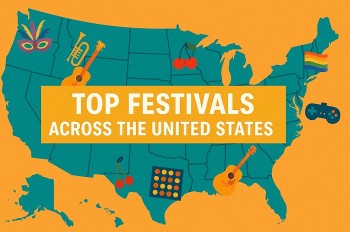 Top 10 Most Popular Festivals Across the United States in June 2025 Top 10 Most Popular Festivals Across the United States in June 2025 From massive music festivals to quirky small-town fairs, June 2025 brings a vibrant lineup of events across the U.S. Here are the top festivals worth ... |
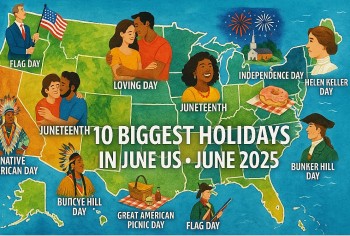 Top 10 Biggest Holidays in the U.S. in June 2025 Top 10 Biggest Holidays in the U.S. in June 2025 June in the U.S. is full of meaning and momentum—from honoring history to celebrating identity, freedom, and the start of summer with vibrant holidays and ... |
 June 2025 UK Calendar: Full List of Holidays, Festivals, Events & Celebrations June 2025 UK Calendar: Full List of Holidays, Festivals, Events & Celebrations Plan your perfect summer with our ultimate guide to June 2025 in the UK—featuring festivals, holidays, cultural highlights, and expert travel tips to help you ... |
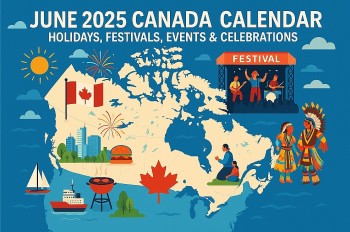 June 2025 Canada Calendar: Full List of Holidays, Festivals, Events & Celebrations June 2025 Canada Calendar: Full List of Holidays, Festivals, Events & Celebrations Discover Canada in full bloom with this complete June 2025 calendar — a guide to holidays, festivals, and unforgettable events from coast to coast. |
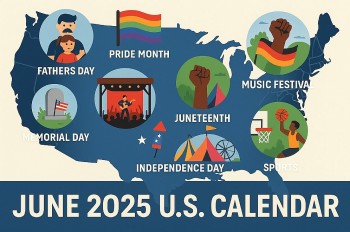 June 2025 US Calendar: Full List of Holidays, Festivals, Events & Celebrations June 2025 US Calendar: Full List of Holidays, Festivals, Events & Celebrations From coast to coast, June in the USA bursts with summer energy, national pride, cultural festivals, and outdoor fun. Here's your ultimate 2025 guide to ... |




